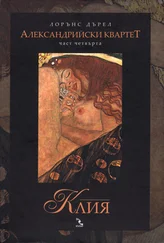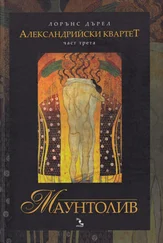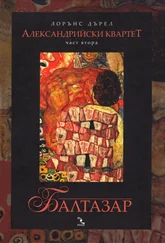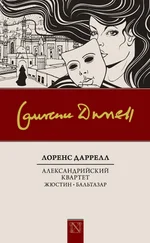Лоренс Даррелл - Prospero's Cell
Здесь есть возможность читать онлайн «Лоренс Даррелл - Prospero's Cell» весь текст электронной книги совершенно бесплатно (целиком полную версию без сокращений). В некоторых случаях можно слушать аудио, скачать через торрент в формате fb2 и присутствует краткое содержание. Жанр: Проза, на английском языке. Описание произведения, (предисловие) а так же отзывы посетителей доступны на портале библиотеки ЛибКат.
- Название:Prospero's Cell
- Автор:
- Жанр:
- Год:неизвестен
- ISBN:нет данных
- Рейтинг книги:4 / 5. Голосов: 2
-
Избранное:Добавить в избранное
- Отзывы:
-
Ваша оценка:
- 80
- 1
- 2
- 3
- 4
- 5
Prospero's Cell: краткое содержание, описание и аннотация
Предлагаем к чтению аннотацию, описание, краткое содержание или предисловие (зависит от того, что написал сам автор книги «Prospero's Cell»). Если вы не нашли необходимую информацию о книге — напишите в комментариях, мы постараемся отыскать её.
Prospero's Cell — читать онлайн бесплатно полную книгу (весь текст) целиком
Ниже представлен текст книги, разбитый по страницам. Система сохранения места последней прочитанной страницы, позволяет с удобством читать онлайн бесплатно книгу «Prospero's Cell», без необходимости каждый раз заново искать на чём Вы остановились. Поставьте закладку, и сможете в любой момент перейти на страницу, на которой закончили чтение.
Интервал:
Закладка:
In Roman times, Agrippina touched here on her melancholy journey from Asia to Italy with the funeral urn of the noble Germanicus. Those few ashes hid all that was left of a world of ambition and pride and uprightness of character. She made only a short stay here 'to calm the agitation of a mind pierced to the quick'.
17.10.37
Confused and out of key with their own lives Anthony and Octavia landed here from an imperial galley; he was on his way to Syria, while she had decided to return slowly to Rome — and to a world of favours as empty as his embraces. .
'A landscape for resolutions and partings,' says Zarian in an essay on famous visitors to Corcyra. 'A landscape which precipitates the inward crisis of lives as yet not fully worked out.' This is from a passage which describes the meeting of Cicero and Cato in the shadow of the fortress in 48 B.C., The former was on his way to Italy to throw himself on Caesar's mercy; the latter 'not having yet despaired of the Commonwealth' was to set sail in company with Cneius Pompeius, for Africa.
19.10.37
Winter quarters for Consuls during the wars between Macedonia and Rome. The wind whitening the reedy stretches of Paleopolis and shrieking through the olive-groves of Perama. On the northern escarpment the seas pounding at Peristeri (Island of Turtle-Doves), and running white and yellow with the undertow of silt from the Butrinto estuary. Civil servants yawning away a winter over wood fires making inventories of fodder and shipping. 'In the last campaign between Pompey and Julius Caesar, the former increased his navy by the shipping of the isle; and had it occupied by the main body of the Fleet under M. Bibulus.'
Here Titus, Vespasian's son, watched with some impatience games given in his honour.
20.10.37
Geneseric, the ally of Attila, says Zarian, was a man who always trusted 'that the winds would bear him to a land the inhabitants of which had provoked the divine vengance'. He frequently visited this indented coastline in person with his pennoned fleet; and after the Vandals came the Goths under the terrible crooked Totila, to pillage and burn.
Having secured Rome, Totila had equipped 300 galleys manned by Goths and sent them down to conquer and ravage Greece. Justinian could only muster 50 sail and 5,000 men to oppose them. It was the Ice Age settling down on the Roman Empire; and for all the valour of Belisarius and Narses it could not be averted or withstood.
21.10.37
Somewhere in the lovely Valley Di Ropa you will come upon a small chapel-covered mound remarkable for the two superb umbrella-pines growing thereon. Above you to the left rises the single crag of Peleka above this expanse of green. To the right, almost hidden by the dense woodland, you will see a long curving drive lined with trees which aims slowly round upon a house with peeling green shutters. The cypresses lining the road are perhaps the most ancient in the island; their plumes are almost black, and near the ground are powdered by the fine golden summer dust. Mournful and unkept to the outward view, the house lies hidden from the main road.
This is the retreat of the Count D., and it is here that Zarian brought me one day to make the acquaintance of this celebrated recluse into whom the philosophic scepticism of a classical education had bitten so deeply. The old Count, a man of about sixty, was stocky and heavily built; he possessed a pair of remarkable eyes set in a head which was a little too big for his body. But the small hands and feet gave a distinctly Byronic cast to one's first impressions. When we first met it was some five or six years since he had first retired from the social life of the town to the calm of his country estate. In an island where loquacity and an overburdening sense of hospitality are the norm it was natural that he should rank as a recluse and an eccentric. Zarian had made his acquaintance in the course of some negotiations about the rent of a town house he was intending to lease from him, and something in the temper of his mind (Zarian was incapable of conducting business except in terms of Neapolitan opera) must have appealed to the Count, for they became immediate and fast friends. And now we spend the first week-end of every month staying in the old house as guests.
27.10.37
Count D. is interesting. Unlike the majority of recluses he is a hospitable man. Comfortably off, fond of his cellar and his immense library, he is content to spend summer and winter beyond the limited range of town amusements and gossip. He shoots, assists at olive-pickings, and christens children; while the wineyield of his property is a constant and delightful concern. The house and gardens were built by an Italian architect, so that though the walks are unkept and the trees unpruned the whole place retains some of the formal humanist charm of the Italian country house.
Here we spend our time in endless conversations. And here Zarian makes the effort of rising at dawn in order to verify the appositeness of the adjective 'rosy-fingered', which the Count maintains to be the most exact as well as the most moving adjective in all literature. Despite several dawns Zarian has not yet agreed with his friend upon this subject.
The Count is a philosopher—'a philosopher', he will tell you deprecatingly in his faultless English or lapidary French, 'a philosopher who only sits and listens'. He speaks always with the most casual frankness about his own life and interests, his rather fine dark eyes fixed calmly upon his audience. He is filled with what Zarian (who is a born hero-worshipper and who finds a philosopher under every stone) calls 'a speculative calm'. It is rather the calm of one in whom the romantic is dead; and in whom the harder cutting-edge of experience has reached the inner man. Despite the sweetness and repose he is a prey to metaphysical incertitudes such as the artist only encounters; this you may guess from the fine sets of much-thumbed European philosophers which line his bedroom. 'Philosophy,' he said once, 'is a doubt which lives in one like hookworm, causing pallor and lack of appetite. Suddenly one day you awake and realize with complete certainty that ninety-five per cent of the activities of the human race — to which you supposed you belonged — have no relevance whatsoever for you. What is to become of you?'
On another occasion he said: 'I am popularly supposed to have retired here because of the death of my wife. It is convenient but not true. Two years before she died I woke up one morning, dressed very swiftly, and stood at the window of my room looking down on the harbour. I was visited by an extraordinary idea. I have had, I thought to myself, all the women I could want, and all the amusement I can possibly bear. Something has changed. I could not analyse the change — was it in me, or in the disposition of the world around me? It was a kind of detachment — an idea not born within the conceptual apparatus but lodged in the nervous system itself. I had become different as a person. Anyone else would have gone away and written a book about it; but I did not want to bring this personal discovery within the range of the conceptual apparatus, and thereby spoil it by consciousness. I retired, it is true, but you will see from my life as it lies around me, that what I am after is not the interpretation of the Principle of x, as I call it; but I wish to interpret the ordinary world of prescribed loyalties and little acts like shooting or lying or sleeping through the Principle. It is the oblique method of dealing with the platonic fire, after all, that betrays experience. Therefore if you come to me, like Zarian, and ask me why I am not writing down these discoveries, I can only reply that that is not what I mean by philosophy. I am enduring, and that is enough.'
It is for these remarkable flights that Zarian admires him so; and not the less for his gravity and the charm of his address. 'If only he would write a book,' says Zarian, the thirsty literary man, 'it would be a work of genius.' Then he adds rather more slowly: 'And if he can live without the thought of suicide. . '
Читать дальшеИнтервал:
Закладка:
Похожие книги на «Prospero's Cell»
Представляем Вашему вниманию похожие книги на «Prospero's Cell» списком для выбора. Мы отобрали схожую по названию и смыслу литературу в надежде предоставить читателям больше вариантов отыскать новые, интересные, ещё непрочитанные произведения.
Обсуждение, отзывы о книге «Prospero's Cell» и просто собственные мнения читателей. Оставьте ваши комментарии, напишите, что Вы думаете о произведении, его смысле или главных героях. Укажите что конкретно понравилось, а что нет, и почему Вы так считаете.







